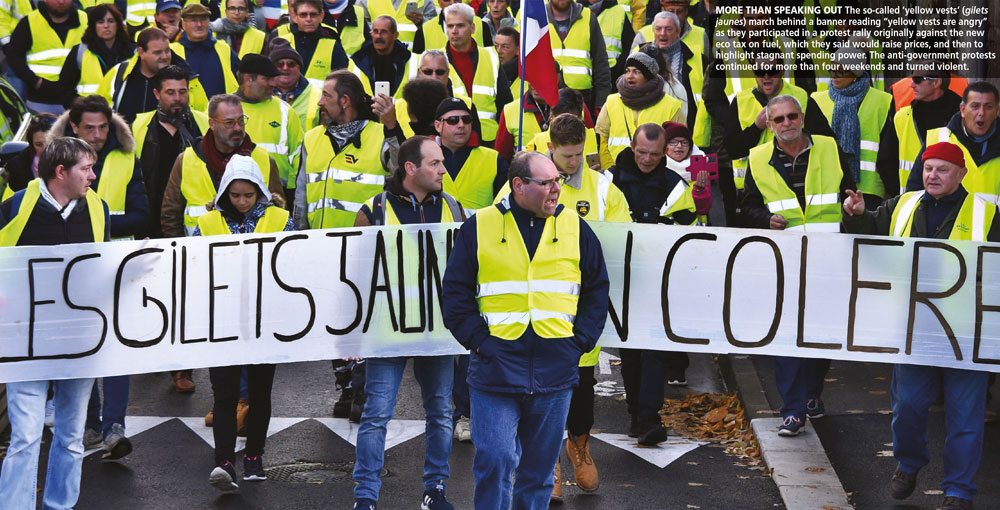FREEDOM OF EXPRESSION
THE RAPID DECLINE OF FREE SPEECH
Tharindra Gooneratne draws attention to the right to express oneself and cautions against the dangers of restricting dissenting opinions
“I disapprove of what you say but I will defend to the death your right to say it.” These famous words were penned by S. G. Tallentyre in the book The Friends of Voltaire. Tallentyre’s sentiments have been echoed by many notable individuals throughout history.
For example, Benjamin Franklin once said: “Whoever would overthrow the liberty of a nation must begin by subduing the freeness of speech.”
When Sri Lanka’s constitution was first drafted, a clause was inserted stating that “every citizen is entitled to the freedom of speech and expression including publication.” Similarly, governments across the world incorporated the respect for freedom of expression into their constitutions, culminating in the universal declaration for human rights stating that “everyone has the right to freedom of opinion and expression.” Today, it seems as if the efforts of our predecessors have been in vain.
One only needs to cast a casual glance at social media to see how little respect we have for another’s opinion especially when it comes to politically sensitive topics. Friendships forged over decades are destroyed because one party refuses to respect the other’s views. The irony of this is that whilst these individuals damage their relationships beyond repair, the very politicians they try to defend are most likely enjoying a healthy relationship behind the public facade.
This phenomenon is not unique to Sri Lanka; it is visible across the world. In 2014, a proposed debate on abortion at the University of Oxford was cancelled after students threatened to disrupt it.
In 2017, a speech by former Breitbart News Network Editor Milo Yiannopoulos at the University of California in Berkeley was cancelled after 150 masked agitators caused damage estimated at over US$100,000 to the campus. As CNN anchor Fareed Zakaria aptly put it, “American universities seem committed to every kind of diversity except intellectual diversity. Conservative voices and views are being silenced entirely.”
Some people could well be reading this column in shock and disbelief, making the assumption that I’m a racist who supports the ideas of right-wing radicals such as Yiannopoulos. In fact, it is because I denounce racism, sexism and any form of discrimination that I believe in respecting such individuals’ right to free speech.
I believe that healthy debate is far more effective in changing people’s mindsets than any attempt to quell free speech. This is why I support the right of a racist or sexist to speak up, just as I support my right to vehemently oppose them.
Even if we believe that racists and sexists do not deserve the same rights that we enjoy, we should be aware that there are other dangers associated with curtailing freedom of expression.
First, if we’re to draw boundaries on freedom of expression, where would they lie? It is virtually impossible to set rules to ensure that freedom of expression only relates to ‘non-offensive’ expressions. What if a Japanese student born in Hiroshima argues that she finds statements portraying former US President Harry Truman as a national hero to be offensive? Or if an LTTE sympathiser living in Europe finds a speech referring to Sri Lanka’s territorial integrity to be offensive?
At what point do we draw the line?
Second, who would be responsible for monitoring these boundaries? The government or perhaps the supreme court? As we have seen time and time again, benevolent governments do not last forever and such power in the hands of the wrong authorities could be very dangerous.
Similarly, how can we campaign for freedom of expression in Saudi Arabia for instance, if we curtail freedom of expression within our own shores? One may argue that we’re curtailing freedom of expression for the ‘right’ reasons. But who decides what’s ‘right’ and what is ‘wrong’?
This brings me to my third point, which is that our values and ideals change over time as we become better informed.
For example, if boundaries on free speech had been laid out in the 1950s, we may not have had the privilege of witnessing Barack Obama’s ascent to the US presidency. If these boundaries had been drawn in the 1970s, no one would be legally allowed to speak in support of abortion.
In fact, if they had been drawn as recently as the late 1990s, citizens across the world would not be able to defend their lesbian, gay, bisexual, transgender, intersex and queer or questioning (LGBTIQ) friends today. This is why it is dangerous to assume that our knowledge of right and wrong is absolute, and that we can be given the power to curtail free speech as and when we deem it appropriate to do so.
Respecting another’s opinion doesn’t equate to agreeing with it. It is this fine distinction that we seem to have forgotten. Freedom of expression is sacrosanct. It would be unfortunate if our quest for true democracy involves undermining one of its most important pillars.




